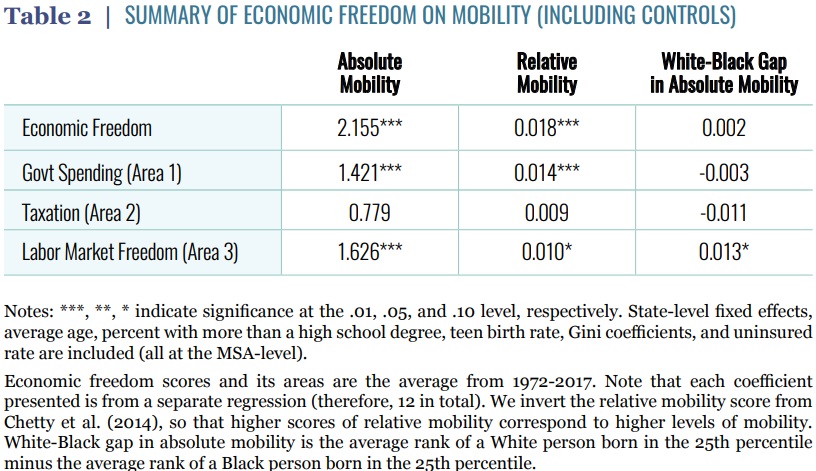At the risk of understatement, our friends on the left are fixated on equality.
 If they were talking about equality of opportunity, or equality before the law, that would be great.
If they were talking about equality of opportunity, or equality before the law, that would be great.
Unfortunately, they want equality of outcomes. Which means supporting bigger government, higher taxes, and other policies that are likely to shrink the economic pie.
In a just and sensible society, the goal should instead be upward mobility so that everyone can get richer.
That means enacting policies that expand the economic pie.
And what are those policies? We can answer that question by looking at a new study by Professors Justin Callais, Vincent Geloso, and Alicia Plemmons. Published by the Archbridge Institute, it investigates whether there is a link between limited government and social mobility.
…an increasing share of debates in economics have centered on the study of inequality… Intricately tied to these debates is the topic of social mobility.
…Using the recent data of Chetty et al…on social capital and intergenerational income mobility in the United States at the subnational-level, we…ask…whether a) economic freedom does improve intergenerational mobility in a meaningful way when using higher quality data and; b) whether economic freedom complements or substitutes the different types of social capital.
Here’s what they found.
…we find that a) economic freedom (both in aggregate form and its components) is tied to greater absolute and relative mobility; b) we find that it has no association with the racial gap in mobility; c) we find that the effect of economic freedom generally outweighs that of inequality; d) the effect of economic freedom matches those of “bridging” social capital and overpowers that of other forms of social capital. …Table 2 regresses the four economic freedom measures against absolute, relative, and gap mobility. Note, each cell within the table represents a separate regression of one measure of economic freedom against one measure of economic mobility, which results in twelve separate regressions. …we find that (low levels) of government spending and high values of labor market freedom are highly correlated with increases in both absolute and relative mobility.
Here is the aforementioned Table 2 for data geeks.
Looking at the conclusion of the study, here are some key takeaways.
While the literature is already clear on the fact that economic freedom increases incomes, this study is the first within the United States to show that the effect of economic freedom helps those at the bottom more relative to those at the top. …Policymakers should seriously consider laxer government regulations in the labor market, as well as lowering taxes and government spending as a way to positively impact those who wish to move up the income ladder.
Sounds like a familiar recipe.

No comments:
Post a Comment